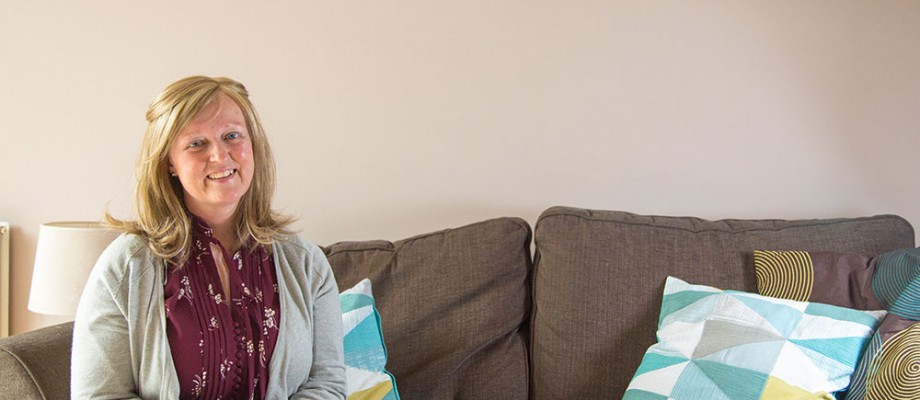
How a 1400 mile bike ride is helping women like Caroline
August 15th, 2016
Working as an oncologist Caroline Humber dealt with cancer daily. But last year she went from consultant to patient when she was diagnosed with breast cancer.
She is one of a group of women helping to promote the University’s Life Cycle 6 campaign which this year is raising money for breast cancer research.
The campaign’s flagship fundraising event starts this Friday (19 August) when a team of University of Nottingham staff, led by Vice-Chancellor Professor Sir David Greenaway, set off on a 1,400 mile endurance ride to raise money.
Last August Caroline was on holiday with her husband Steve and two girls, Frankie and Olivia, when she noticed a change in her breast.
She went to her GP thinking it was nothing but in 10 days later she was starting chemotherapy.
“It was overwhelming”, she said. “I’d always examined myself but after I’d been swimming I could feel a little chord under my boob. A scan showed it was cancer underneath my breast and in the nodes under my arm and then suddenly I was having chemotherapy.”
Caroline had eight sessions of chemotherapy before a mastectomy and then radiotherapy. She is still taking medication.
“I didn’t even think about having breast cancer until I was going down to theatre for the mastectomy but I knew that I’d dealt with everything in stages but the side effects of the chemotherapy were awful.”
Caroline, who lives in Desford, Leicestershire, studied medicine at The University of Nottingham — under Professor John Robertson, the same professor who is leading the University’s pioneering research.
She said: “I’m an oncologist but I don’t treat breast cancer. I was glad because it meant my knowledge was out of date. I had a good understanding of how I would react to the chemotherapy but not the latest treatments or the survival rates. I’d rather not know.
“I worry it will come back, I worry about my girls, I worry what to expect but I was told I’ll need 10 years of hormone treatment and this lifted me.”
Professor Robertson and his team are working to develop the first blood test to detect breast cancer and are using new techniques to help make treatments more effective and target aggressive types of the disease such as Triple Negative Breast Cancer.
Caroline said: “I found out about the Life Cycle 6 campaign and wanted to help. The money raised is going directly to the labs and you can actually see the projects developing.
“I had an aunty die from breast cancer at a young age. If there can be a diagnosis earlier, through a blood test, it can only be a good thing.
“My future is uncertain and research into new drugs to treat secondary breast cancer is needed, and often overlooked. For me the work The University of Nottingham is doing is scientifically interesting and could be something that helps me in the long run.”
The Life Cycle 6 endurance team will cycle to the ‘four corners of the UK’ before arriving back in Nottingham for a community bike ride. As well as sponsoring the team the University is encouraging people to hold their own fundraising events such as bake sales, dress down days, sky dives and charity discos. A list of ideas and more information features on the Life Cycle website.
Tags: breast cancer, Breast Cancer Research, Campaign and Alumni Relations Office, charity, fundraising, Life Cycle, Life Cycle 6, research
Comments are closed.
Other

Need news? See you on SharePoint
After 14 years of service, Campus News is being retired as the university’s staff news platform. […]

Roads and car parks closed for refurbishing work
As part of ongoing road improvements at the university, works will be taking place to resurface […]

